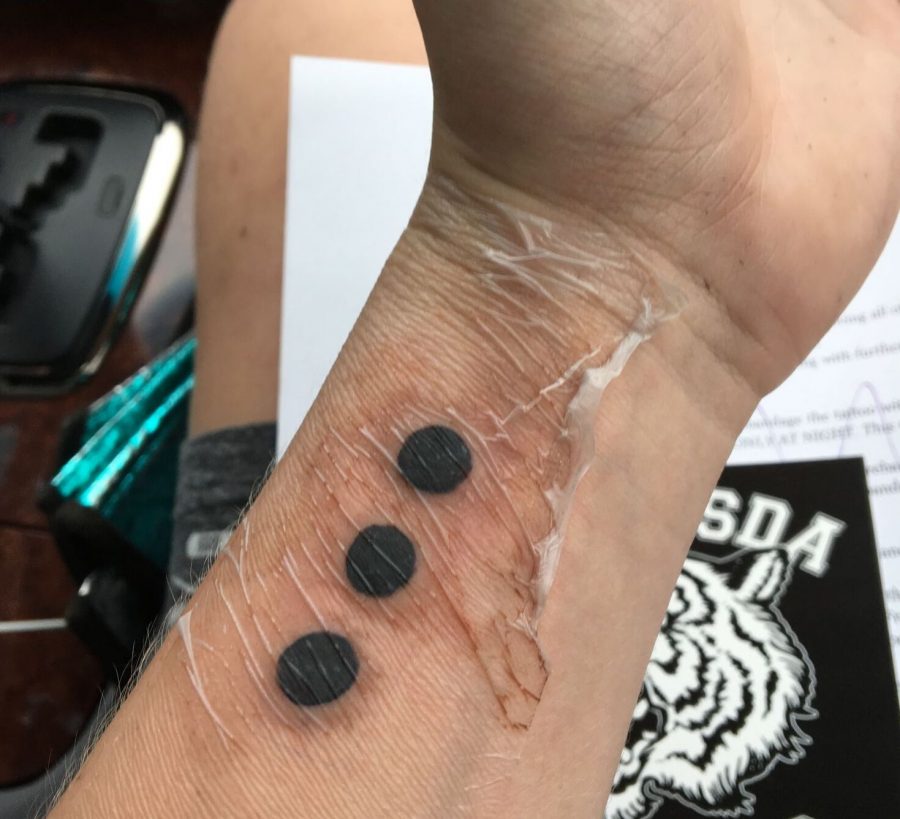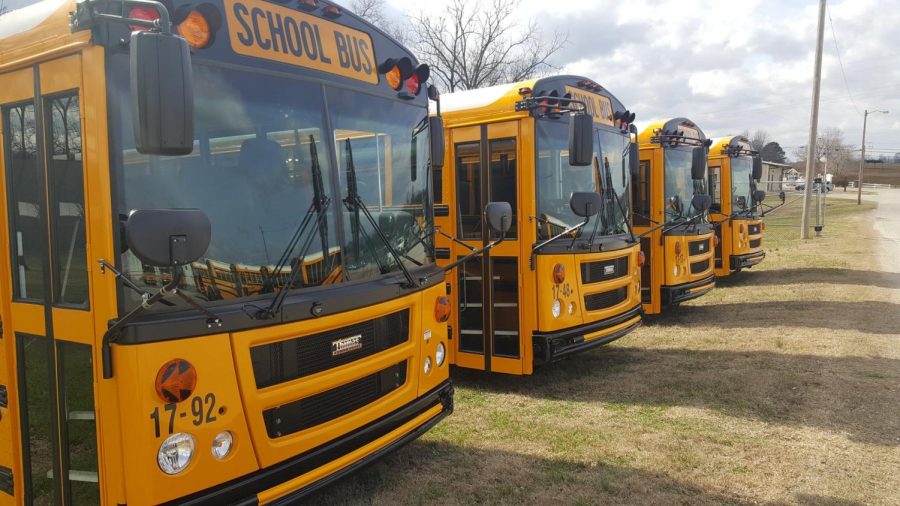Do tattoos and hair dye really affect getting a job?
Senior Rob Lloyd got a tattoo on his wrist to celebrate his 18th birthday. Nowadays, tattoos and died hair are more normalized and neither affects one’s chances of getting a job in a major way. Photo courtesy Rob Lloyd.
December 5, 2018
On his 18th birthday, senior Rob Lloyd didn’t buy his first lottery ticket. Instead, Lloyd visited Bethesda Tattoo and Piercing and got a tattoo of three dots on his arm, meaning “to be continued.” To him, the tattoo serves as a reminder that his life isn’t done, and high school is only a stepping stone his future.
Tattoos and hair dye often help students express themselves, but many worry about the impact their body art might have on potential employment opportunities. A University of Tampa study found that 86 percent of students surveyed think those who have visible tattoos will have a harder time finding a job.
Despite this perception, the way employers view body art is changing. More and more employers are neutral about tattoos and dyed hair; 86 percent of young professionals under the age of 30 don’t think hair dye and tattoos reduce a job applicant’s chances, according to the International Journal of Innovative Research and Development.
Junior Gwen Arbetman is an assistant at Montgomery County Parks and Recreation Department. Her older coworkers have frequently been rude to her since she dyed her hair purple last school year, she said.
“The majority of the people I work with are older, and a lot of the time they do make comments on how I’m unprofessional, or I don’t look like I’m supposed to work there,” Arbetman said.
But, when she worked with kids and young adults over the summer, the reactions were different—most people commented on how much they liked her hair.
Junior Mizuki Brent proudly sports a five-inch tattoo of Japan on her back to represent her pride in her heritage. Brent said her tattoo has never hurt her chances in getting a job; in fact, one time it might have even helped.
“I work at a Japanese place,” Brent said. “They said ‘oh my god so cool’ when I showed them. They don’t care.”
Susan Limb, owner of Praline Bakery, said that when hiring, they don’t consider tattoos or hair dye specifically, but they do take into account the overall attitude, appearance and presentability of the potential hire.
Lloyd often dyes his hair unnatural colors, earning him the nickname “Jack Frost” this past summer when he dyed his hair a vibrant blue. Over the summer, he worked as a camp counselor, teaching kids filmmaking and how to create digital music. During the school year, he has a volunteer job at the Kid Museum. He hasn’t had any problems finding jobs with his hair color, he said.
“I don’t think there is any field that would care about my tattoo,” Lloyd said. “Just because it’s so simplistic that I can’t imagine anyone would have a problem with it, and tattoos are so much more normalized now than 20 years ago.”







